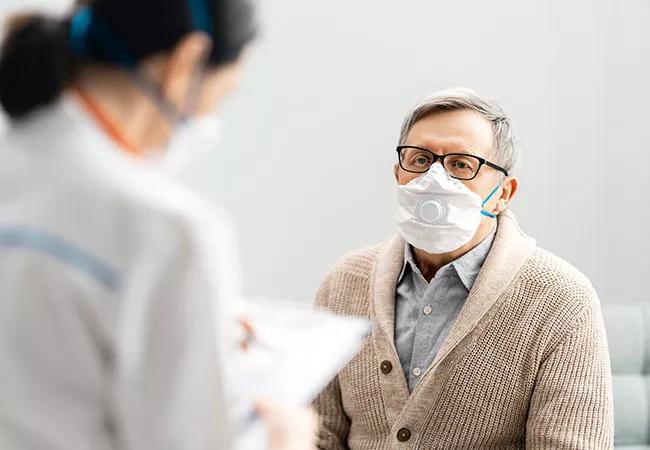Study examines the relationship between outcomes and delay

Understanding the effect of delayed treatment on patient outcomes — particularly in high-grade prostate cancer — is of growing interest to patients and clinicians. Findings from a new study show that time-to-treatment, at least in the short term, is not significantly associated with adverse outcomes in patients with high-risk prostate cancer. The results were published in BJU International.
Advertisement
Cleveland Clinic is a non-profit academic medical center. Advertising on our site helps support our mission. We do not endorse non-Cleveland Clinic products or services. Policy
An expectation for high-grade prostate cancer, which makes up about 10% of all prostate malignancies, is that earlier treatment is always better. Findings from the study suggest that delays of up to 12 weeks do not affect outcomes, however.
Eric Klein, MD, Chair of the Glickman Urological and Kidney Institute and a co-author of the study, says this should be encouraging to patients and physicians in cases when a delay in treatment is warranted.
“Treatment may be delayed for a variety of reasons. It could be related to treatment toxicity or a crisis situation, such as with the COVID-19 pandemic. A patient may want a second opinion, or be a good candidate for neoadjuvant trials,” says Dr. Klein. “Understandably, there may be some hesitation among newly diagnosed patients about delaying surgery, even if it’s because they are receiving other anticancer treatment.”
The backdrop of this study is the understanding that multimodality approaches are necessary to treat aggressive prostate cancer. In recent years, researchers and clinicians have made novel discoveries about the molecular basis of prostate cancer and the development of new therapeutic agents. Neoadjuvant trials, or those happening before surgery, provide an opportunity to learn more about a patient’s cancer to inform treatment pathways and efficacy.
“This study opens the door for greater opportunities to explore neoadjuvant therapies for high-risk disease so that we can continue to improve care,” says Dr. Klein.
The study examined 1776 patients across three different centers with high-risk or very high-high (VHR) prostate cancer who underwent radical prostatectomy from 2005 to 2015. The high-risk cohort included those with a PSA level of > 20 ng/mL, a biopsy with a Gleason sum of 8-10 or clinical stage T3-4. The VHR cohort included those with a primary biopsy Gleason pattern 5, more than four biopsies with a Gleason sum of 8-10, or two or more high-risk features.
Advertisement
The primary goals were to analyze biochemical recurrence, metastasis, prostate cancer-specific mortality and all-cause mortality in patients who underwent radical prostatectomy. Time-to-treatment was grouped according to patients who received surgery within 8 weeks, 8-12 weeks, and 12 or more weeks after biopsy. The median age and PSA level were 62 (range, 57-67) years and 7.0 (range, 4.9–13.0) ng/mL, respectively. The median time from biopsy to surgery was 67 (50-91) days. Patients were followed for a median of 31 (range, 12.2-55.8) months.
The study authors concluded that outcomes, including recurrence and mortality, were not significantly associated with time-to-treatment — this was consistent in both high-risk and VHR cohorts. Dr. Klein remarks that the study findings were not surprising, but they were reassuring.
“Patients are understandably scared when they learn they have high-grade cancer. But what we have seen anecdotally — and what these data suggest — is that a reasonable delay in treatment is not likely to affect outcomes in these patients. In fact, if it’s because of their enrollment in a promising drug trial, it might actually serve them better.”
Advertisement
Advertisement

Early results show strong clinical benefit rates

The shifting role of cell therapy and steroids in the relapsed/refractory setting

Radiation therapy helped shrink hand nodules and improve functionality

Standard of care is linked to better outcomes, but disease recurrence and other risk factors often drive alternative approaches

Phase 1 study demonstrates immune response in three quarters of patients with triple-negative breast cancer

Multidisciplinary teams bring pathological and clinical expertise

Genetic variants exist irrespective of family history or other contributing factors

Study shows significantly reduced risk of mortality and disease complications in patients receiving GLP-1 agonists